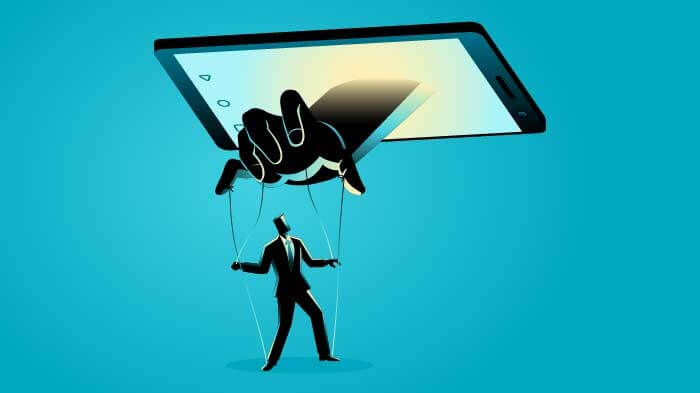Your cart is currently empty!

How to Break your Media Addiction
Media consumption has become an integral part of our daily lives. The instant access to endless entertainment has manifested a growing concern about the negative impact of overconsumption on mental health and well-being. The intersection of habituated behavior, normalcy bias, and dopamine interaction creates a cycle that can lead to media addiction and a compunding cycle of depression.
Media Addiction Cycle
- Media consumption triggers the release of dopamine, a neurotransmitter associated with pleasure and reward.
- Repeated exposure to media content creates a habit that becomes deeply ingrained in our daily routines, making it difficult to break free from constant media consumption.
- The anticipation of, and reception of, new content and/or positive feedback from likes and shares creates a cycle of dopamine release, reinforcing the behavior.
- Our tendency to view our media habits as normal and necessary leads us to underestimate the potential negative impacts of excessive media use.
- Over time, we develop a tolerance to dopamine, requiring more media consumption to achieve the same pleasurable feelings. This can lead to a neurochemical snowball effect, increasing the likelihood of depression.
How Can You Recover from Media Addiction Independently?
Recovering from media addiction requires a methodical approach that incorporates healthier activities into your daily routine. Here’s a step-by-step tutorial on how to achieve this independently, without outside influence:
Self-Awareness and Reflection
Start by reflecting on your current media consumption habits. Keep a journal to track your screen time and note how it affects your mood and daily activities. Recognize and acknowledge the potential negative impacts of excessive media use on your mental health and well-being.
Set Specific Goals for Reduction
Establish clear, achievable goals for gradually reducing your media consumption. A good place to start is cutting down your screen time by 30 minutes each day. This includes phone entertainment. Identify specific triggers that lead to excessive media use and plan alternative activities to replace these moments.
Replace Media Time with Hobbies and Interests
Identify hobbies or interests that you enjoy but may have neglected due to excessive media use, such as reading, painting, or gardening. Schedule dedicated time each day for these activities, gradually substituting them for media consumption.
Incorporate Physical Exercise and Outdoor Activities
Integrate physical exercise into your daily routine. Walking, jogging, yoga, or home workouts can significantly improve your mental and physical health. Spend time outdoors to refresh your mind and reduce screen time. Activities like hiking, biking, or simply enjoying a walk in the park can be beneficial. Anything you do that exposes your skin to the sun and/or involves a workout can help increase dopamine interaction, drawing subconcious associations to pleasure outside of digital entertainment.
Practice Mindfulness and Relaxation Techniques
Practice mindfulness techniques such as deep breathing, meditation, or progressive muscle relaxation to manage stress and reduce the urge to engage with media. Utilize mindfulness apps or guided meditation sessions available online to support your practice.
Create a Structured Daily Routine
Develop a structured daily schedule that includes specific times for media use and alternative activities. Consistent meal times, sleep schedules, and breaks can promote overall well-being and reduce reliance on media for entertainment. Ensure your routine balances work, leisure, physical activity, and social interactions to create a holistic approach to daily life.
Implement Digital Detox and Screen Time Limits
Work regular digital detoxes into your routine, such as unplugging from screens for an hour before bed or dedicating weekends to screen-free activities. Use smartphone apps or built-in features to set daily screen time limits and receive reminders when nearing those limits.
Pursue Personal Growth through Learning
Explore online courses, podcasts, or books on topics that interest you, providing intellectual stimulation without excessive media consumption. Engage in creative activities like writing, drawing, or learning a musical instrument to channel energy away from screens.
Family and Friends
Lean on your connections with friends, family, or community members through in-person or virtual interactions. Plan social activities that promote face-to-face communication and shared experiences. Through this you can help lift your community and help inspire the people within your sphere of influence.
Evaluate Progress and Adjust as Needed
Periodically review your progress in reducing media consumption and increasing alternative activities. Celebrate small successes and adjust your goals as you build healthier habits and find balance in your daily life. Dont judge yourself for percieve failures, view the changes in context of the larger trend.
Integrating these steps into your daily routine can be an effectively catalyze your recovery from media addiction and he;lp you build a more balanced and fulfilling lifestyle. Remember, the key is to this process patience and persistence, making small adjustments to achieve long-term benefits for your mental health and overall well-being.

Leave a Reply